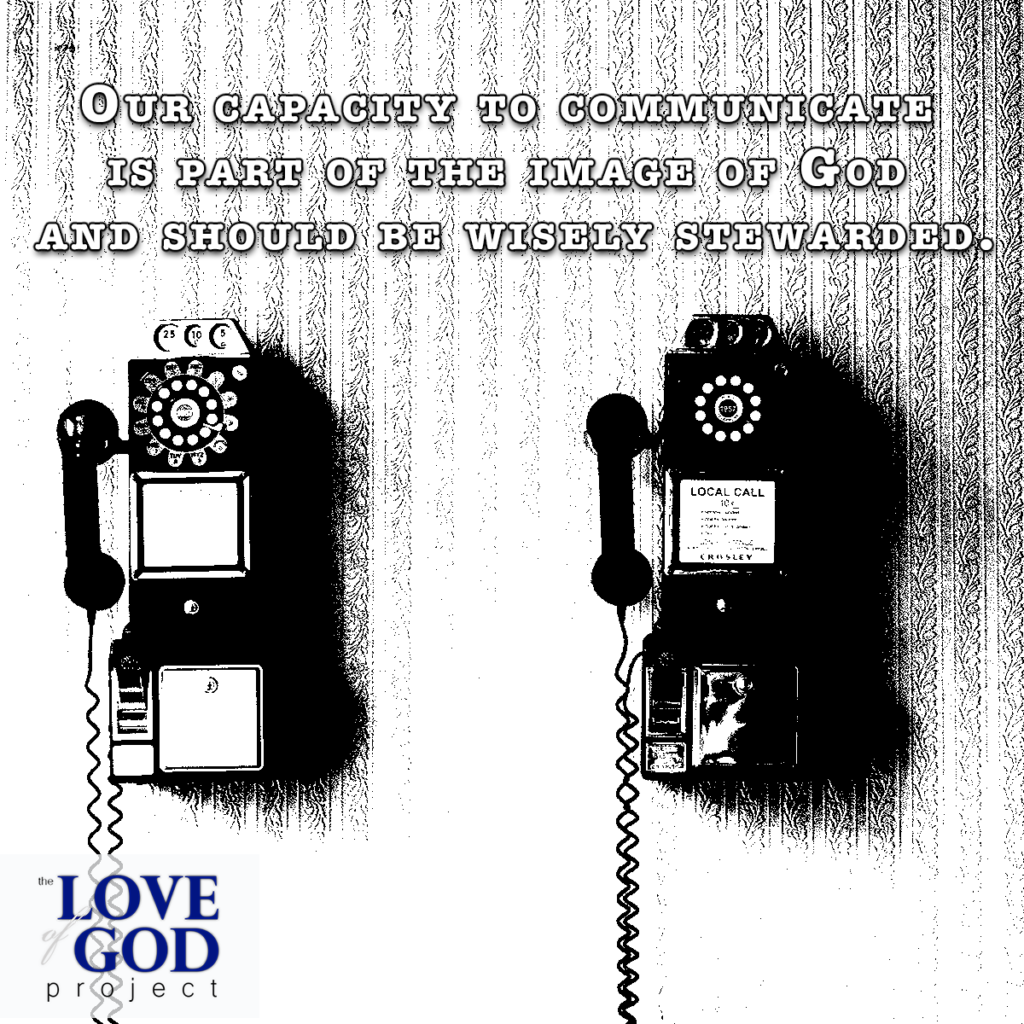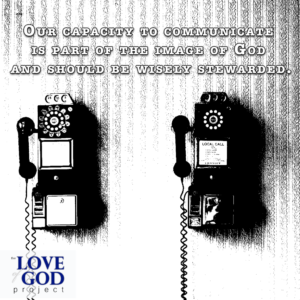Day 8
Inner Narrative Pleasing God
Please bear with me, I want to reframe the outlook of these meditations.
Here we go…
The Bible teaches that humanity is important to the Creator. God witnesses human words and thoughts. That which we say to others, that which we think and speak about others, can please or displease God. He wants them to experience your love. The same thing is true about how we view and speak about ourselves. We are tasked with constructing an inner narrative which blesses God. This will help us relate to Him, ourselves, and others. Incidentally, this will be good for us.
Incidentally? Yes. I’m seeking to encourage us to develop a godly, holy, inner narrative. Pursuing a holy inner narrative falls under the category of seeking first the Kingdom of God and its righteousness. Please read this verse:
“But seek first His kingdom and His righteousness, and all these things will be added to you. (Matthew 6:33)
This verse specifically refers to material provision. However, the principle holds. As we seek to honor our Lord in our meditations and words what we need for emotional and social health “will be added to” us.
The Scriptures contain an enormous amount of instruction about what we say, to whom we should say it, and how we should speak. It is plainly taught that our speech to others is to be strategic. Our capacity to communicate is part of the image of God and should be wisely stewarded.
God’s word is like a hammer (Jeremiah 23:29) and one of the earliest verses that was hammered home to me is Ephesians 4:29. Here it is, in some of its context, from the Lexham English Bible.
No rotten word must proceed⌋ from your mouth, but only something good for the building up of the need, in order that it may give grace to those who hear, 30 and do not grieve the Holy Spirit of God, by whom you were sealed for the day of redemption. 31 All bitterness, and rage, and wrath, and clamor, and abusive speech, must be removed from you, together with all wickedness. 32 Become kind toward one another, compassionate, forgiving one another, just as also God in Christ has forgiven you. (Ephesians 4:29–32 Lexham English Bible)
This is a guide for purposeful interpersonal communications and relationships. It is also applicable to intentional inner-personal communication and relationship. What is true of how we are called to relate to others in God’s presence is a key to how we are called to relate to ourselves. We exist in His presence, and His Spirit is manifestly present in us.
The LORD is pleased when our thoughts about others, and the words we speak concerning them, are loving and edifying. Here are two relevant questions: Is God pleased when our meditations and words about ourselves are loving? Does He want us to treat our own souls in a way that He forbids when we interact with others?
This section from Ephesians 4 is a potent guide that has immediate relevance to our topic. Let’s look it over, take it apart, and apply it.
Here is a quick overview: This selection of Scripture begins with a prohibition, immediately leads into positive redirection, points the disciples to their relationship with the interactive Spirit, and reminds them of their eschatological hope. Then it immediately reorients into another prohibition, which leads into positive exhortation, pointing the believers to the goodness of God in the Messiah.
I want us to get the most we can out of these verses.
To begin, let’s ask what is a rotten word?
Rotten is a literal translation of the Greek: sapros (σαπρός). Sapros means rotten, or decayed. When I think of something that is dead and decomposing I consider that at one time it was fully grown, ripe, and ready for consumption. In this verse sapros was used to convey something that is harmful. It is the opposite of something good. Permit me to rely upon Reverend Obvious’ reflection: Paul prohibited communication that was bad for the hearers and bad for the speaker.
I believe that we will be held liable for speaking rotten words. The Messiah Jesus warned about speaking careless, or idle (ἀργός – argos), words.
“But I tell you that every careless (idle) word that people speak, they shall give an accounting for it in the day of judgment. (Matthew 12:36)
This introduces another category of speech. Idle words are merely ineffective. They do not build, but they don’t destroy, either. The unwholesome words warned against in Ephesians 4:29 are harmful. They tear down; they do not edify. They hurt; they do not heal. If worthless words are to be a criteria for judgment, how much more shall words that wound?
This has relevance to the way we speak to ourselves. This provides a meaningful caution to the manner we think about ourselves. Our inner words need to be wholesome. They need to be good. Paul wrote that they need to be timely, too.
Do you know that some advice may be good in one circumstance and not in another? A parent may be encouraged to engage in “tough love” and end up breaking a child’s spirit. Another child may need to know boundaries and the consequences of their actions.
Here are a couple of thoughts…
Do you remember when Israel was told to go and possess the land and they chickened out? There was a time limitation on that word. When they decided, based upon earlier direction, to go and try to conquer on their own they suffered defeat (Numbers 14:39-45). Their timing was way off – by about forty years. They were acting upon a word that was once vibrant, but was now a rotten word.
It would have been a disaster if Abraham decided to follow through with the prior divine calling to sacrifice Isaac. There was a more immediate command he needed to heed. There was an earlier instruction, from a previous visitation, he needed to ignore. The preceding word was no longer relevant (Genesis 22:11-12).
We need to make certain that our words are appropriate and fitting the immediate need. Telling a broken hearted penitent to repent may have been relevant twenty minutes earlier. The same word can permanently break an already fractured soul, or quench the hope of the grieved.
Of the Messiah, it is written:
“A bruised reed He will not break And a dimly burning wick He will not extinguish (Isaiah 42:3a)
Let’s follow His example. We are wise if we ascertain and ensure that our current meditations and self-talk fits the immediate need.
What makes a word something good? Amongst other things it is suitable for the immediate situation. Discerning the situation may be dependent upon the leading of the Holy Spirit, the clear instruction of the Scriptures and, in more extreme examples, the counsel of the believing community.
This has relevance to how we speak to ourselves. This has relevance to how we speak to ourselves. Note, the fruit of our lips that outlived its ripe season might have rotten consequences if eaten beyond its due date.
Consider yourself in the midst of your own circumstances. What is the true immediate need? Do you know?
To understand that takes time spent in the Scriptures and His presence.
Please pray, once again:
Let the words of my mouth and the meditation of my heart be acceptable in Your sight, O Lord, my rock and my Redeemer. (Psalm 19:14)
Or on Kindle
Also, David wrote a book about God’s love for the Jewish People called, For the Sake of the Fathers
And a book on Leadership
Check out David’s new worship album, Looking for a City




